French fans believe Alaphilippe can end their Tour de France drought
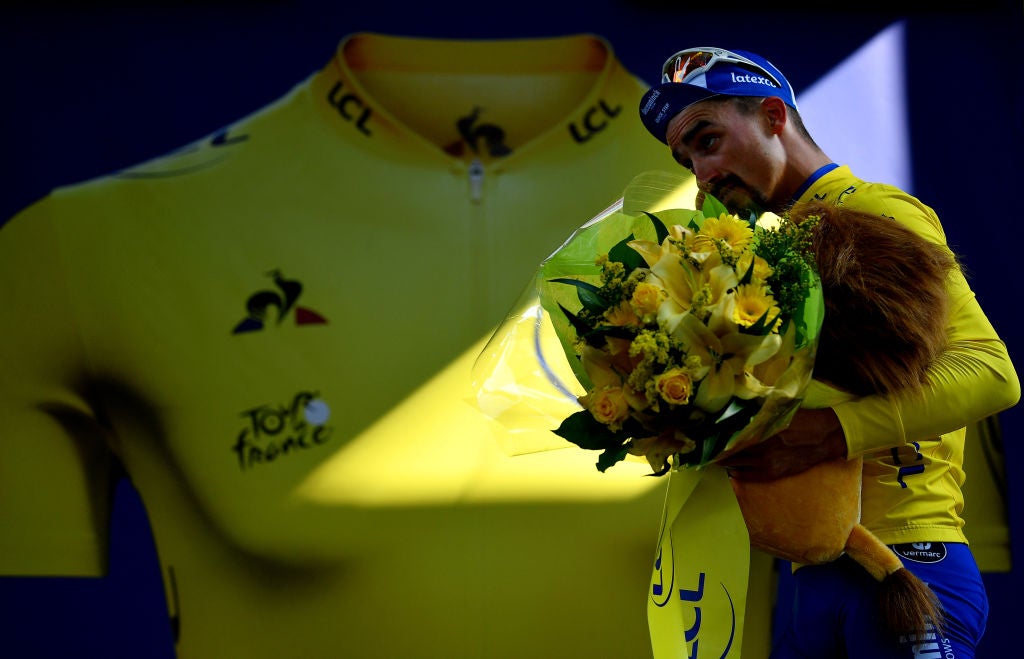
(Photo by Justin Setterfield/Getty Images)
LA MONGIE (VN) – Beaming like he has not for many years in the Village Depart is French legend Raymond Poulidor, nicknamed ‘Pou Pou’ and ‘The Eternal Second’ after his three second places in the Tour. Poulidor’s career spanned from 1960 to 1977 and coincided with the eras of Jacques Anquetil and Eddy Merckx.
“We are enjoying this Tour de France. I am enjoying it. It is a Tour de France with character,” the 83 year-old Poulidor says. The crowd gathered around him in Tarbes on Thursday beckons for an autograph and a selfie.
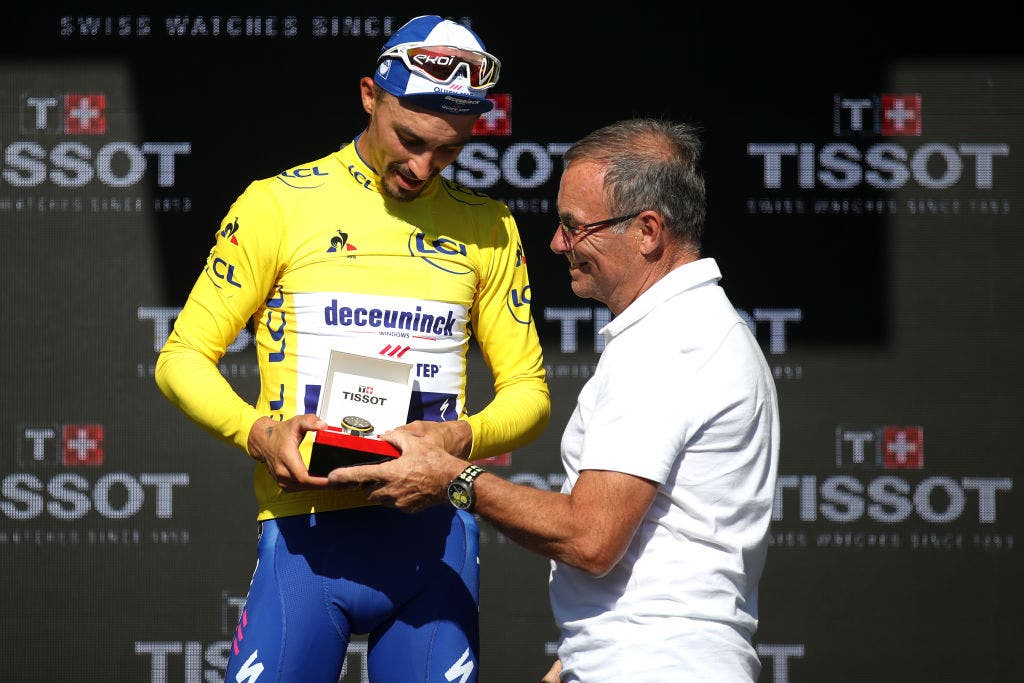
Finally, Poulidor and his French countrymen and countrywomen have belief that one their own could end the drought of French Tour success that dates back to 1985 when Bernard Hinault won the Tour for the fifth and last time of his career.
Hopes of a French renaissance have risen every day that Julian Alaphilippe’s astonishing reign in the yellow jersey has continued. Those hopes were bolstered on Saturday when Thibaut Pinot won the 14th stage, and Alaphilippe (Deceuninck-Quick Step) defended his overall race lead.
Finally, French chants and cheers are being heard by the road and podiums. French television and radio are now leading with stories of the exploits of Alaphilippe and the other French riders. French newspapers are running front page photos of French riders.
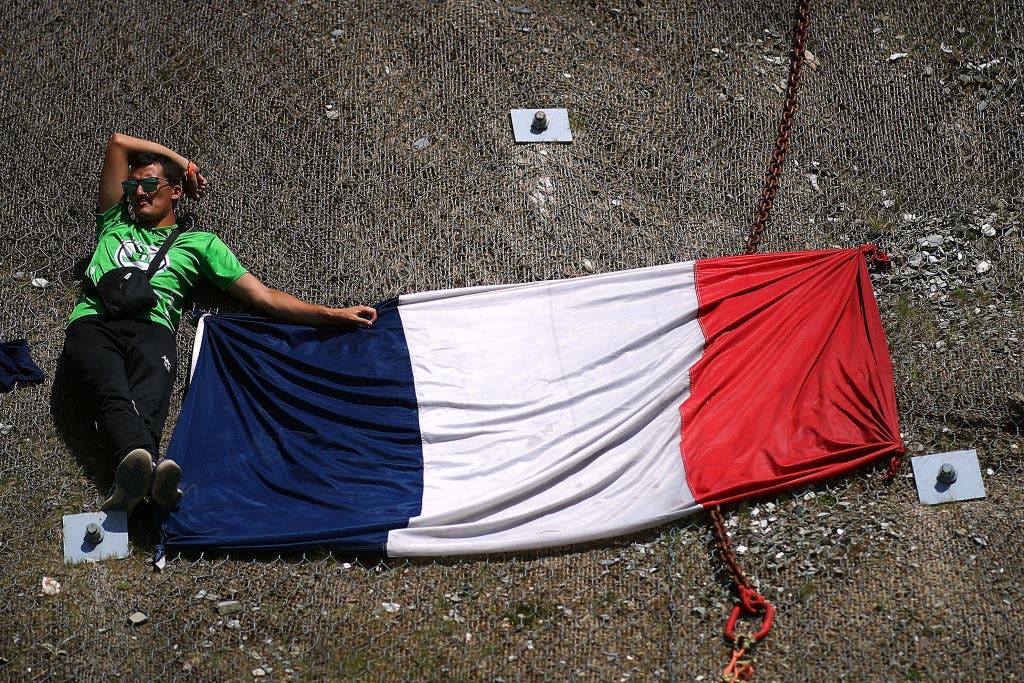
This celebration of French success is something the Tour has not seen for 30 years; the last being Laurent Fignon who wore the yellow jersey into Paris on the final stage of the 1989 race, a 24.5km time trial. Fignon famously lost the lead to American Greg LeMond by a record low margin of 8 seconds.
That Sunday was the last day of 22 that Fignon, the Tour winner in 1983 and 1984, ever wore the yellow jersey.
He may have lost the Tour in the most horrible of ways, but the Parisian was still respected as one of the classiest and most daring riders. His ability was matched by panache; and as much as LeMond was deservedly lauded for his victory, the contest between him and Fignon was one of the most memorable of modern Tours.
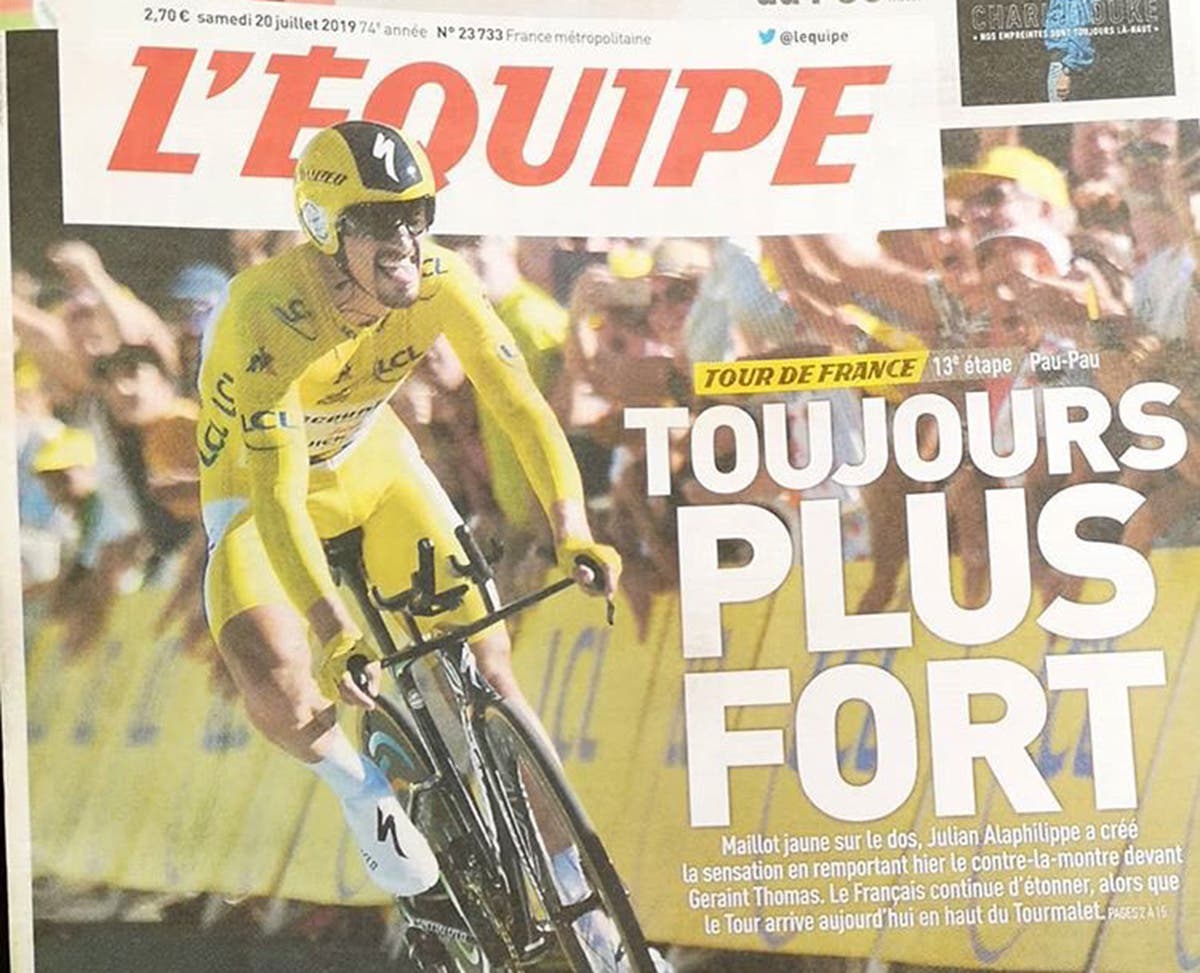
After LeMond claimed the yellow jersey in the stage 5 time trial, he and Fignon fought tooth and nail all the way to Paris. The yellow jersey changed between them four times. How Fignon took on LeMond was like nothing the French have seen since. That is, until this Tour, since the astonishing efforts of Alaphilippe and now Pinot put the Tour back into French consciousness that had been waning for all the years the French had fallen short.
Former French rider Jean Rene Bernadeau, who rode professionally from 1978 to 1988 and wore the yellow jersey for one day after stage one in the 1976 Tour, believes the Tour is still missing riders of Fignon’s ilk.
Pressed on the style of rider that was Fignon who died of cancer in 2010, Bernadeau, who also manages the Total Direct Energie Pro Continental team that is racing the Tour as a “wild card,” cited Fignon’s intelligence.
“He was a great rider with lot of character in a time when cycling was different,” Bernadeau told VeloNews. “Cycling then was about [seizing] opportunity. It was about spontaneity. He would have ‘Plan A’ and then a ‘Plan B’ which would be to go by instinct. He was intelligent. Today, intelligence has been rubbed out of cycling by the use of radios and ear pieces [by riders.] Cycling today is just about being strong which is a shame.”
Asked if he saw any riders in the peloton who still have the “intelligence” that he saw in Fignon, Bernadeau named Alaphilippe, Pinot, as well as Slovakian Peter Sagan (Bora-Hansgrohe).
“They have that intuition,” Bernadeau said. “And they don’t have to rely on a system where they will lose their personality.”
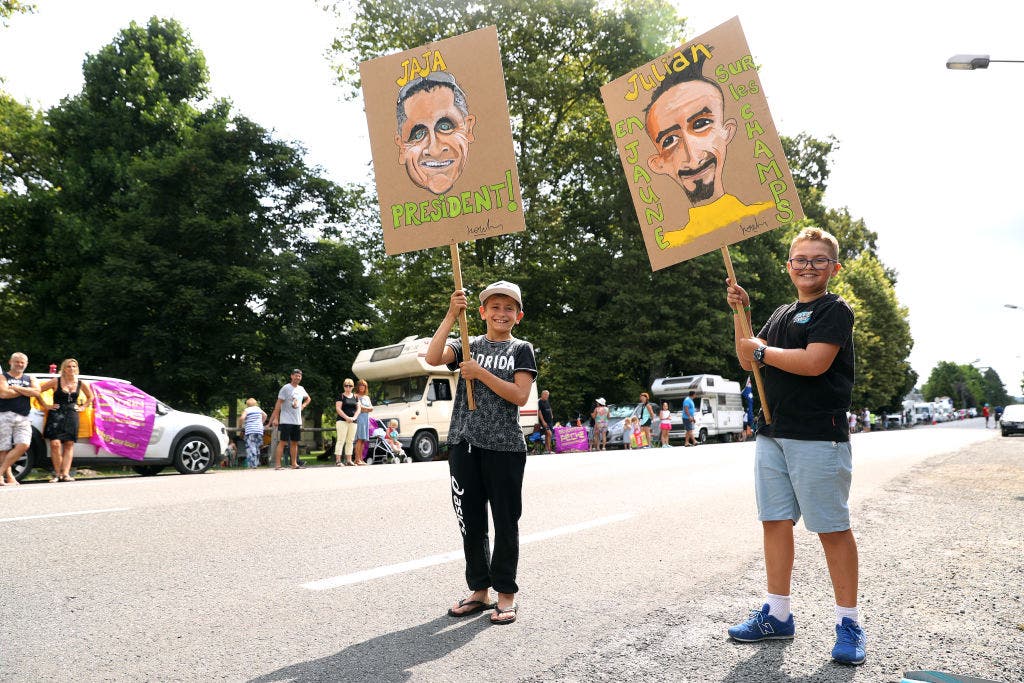
Former British professional Graham Jones, who also rode professionally from 1979 to 1988 and raced against Fignon, knew the Frenchman well.
“Fignon had a real strong character, wasn’t scared of anything,” Jones says. “I don’t think he even was when dying. He had an unbelievable will to win and a great, a great strong character.”
This is not to say that the Tour has not seen some strong performances by French riders since 1989. Many have won stages, and since Fignon’s ill-fated last day in the 1989 Tour, twelve have also worn the yellow jersey – a.k.a ‘le maillott jaune’ – for various lengths of time.
French Tour leaders since 1989 are Ronan Pensec (2 days, 1990), Richard Virenque (2days, 1992, 2002), Pascal Lino (10 days, 1992), Laurent Jalabert (4 days, 1995, 2000), Stephane Heulot (3 days, 1993), Jacky Durand (2 days, 1995), Frederic Moncassin (1 day, 1996), Cedric Vasseur (5 days, 1997), Laurent Desbiens (2 days, 1998), Thomas Voeckler (20 days, 2004, 2011), Romain Feillu (1 day, 2008), and Tony Gallopin (1 day, 2014) who was the last before Alaphilippe took it for the first of two spells in this Tour, on stage three when he attacked with 15km to go to Epernay where he flew up the finishing ascent.
But until Alaphilippe and Pinot stood up as they have in this year’s 106th Tour, no French rider had seriously looked like winning the Tour as Fignon did when he won the race twice and was pipped by LeMond. Not even Romain Bardet looked like seriously threatening British winner Chris Froome when he podiumed in 2016 and 2017.
It has perplexed many, from the likes of Hinault to Tour organizers and the French media and public, that no French rider has been able to break France’s winless drought in the Tour. It has bewildered many observers outside of France. Some have questioned their will and heart, others their nutrition, training and preparation.
Trying to solve the puzzle can take one back to the 1980s when the French were a major power in their home race, takes one back to a time when the peloton was not as multi-national as it is now. Bernadeau believes that there is now less of the Tour pie for the French to savor as more countries are represented in the peloton.
“The Tour is very strong, very big. The Tour is bigger than France,” Bernadeau said. “The Tour de France today is the biggest event in the world. We [France] are now just a part of this. True, the French love the French riders, but today we are a part of what was once a ‘piece de theatre’ that has become a global institution.”
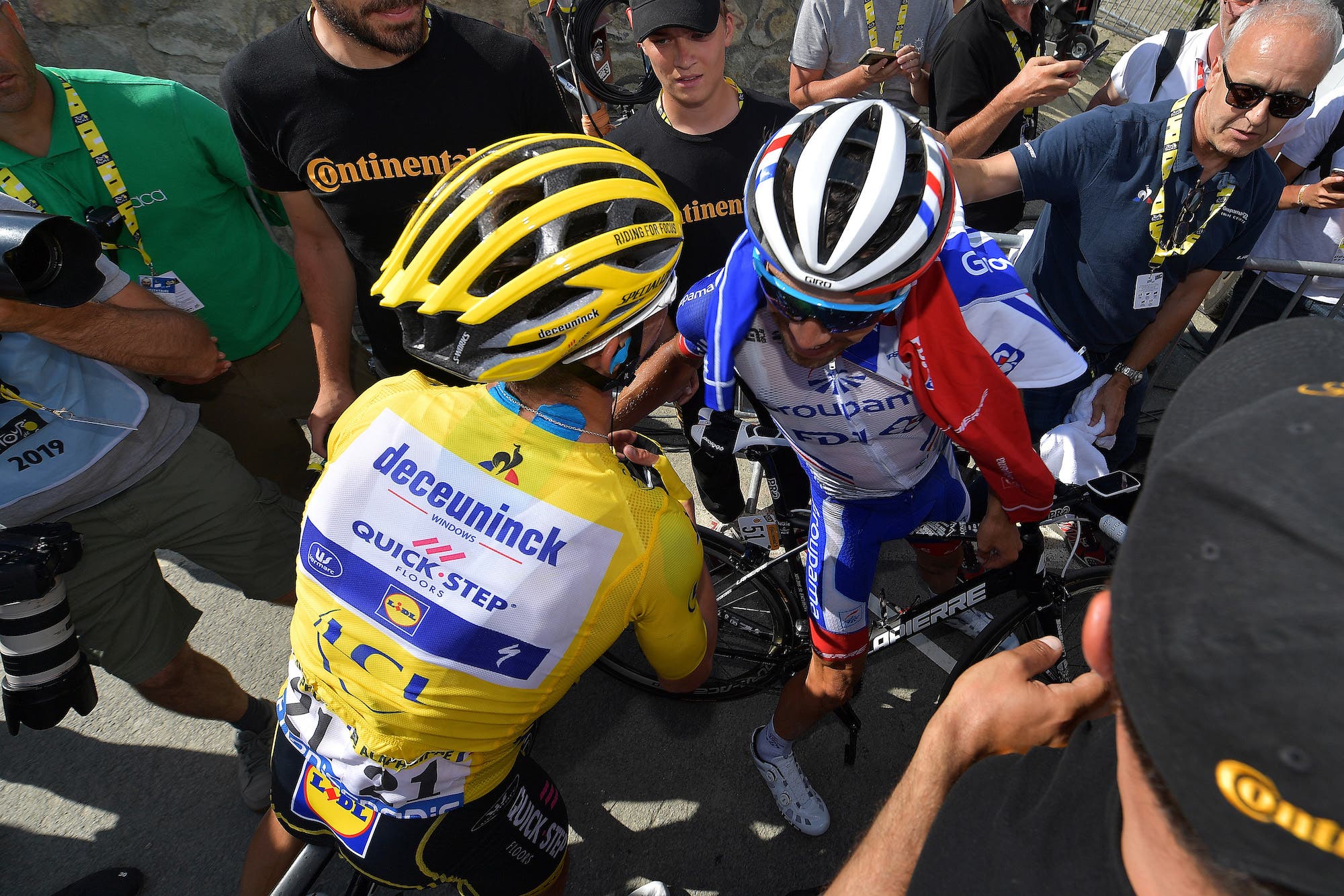
Speaking of the Tour in the early 1980s, Bernadeau said: “The Berlin Wall hadn’t fallen then. There was only Phil Anderson and Jonathon Boyer in the peloton, that’s all. The Italians loved the Giro as their priority, as did the Spanish the Vuelta and the Tour itself was not the same. It is now an international machine and today there are Russians, and the Chinese and Japanese [in the sport] and Australia is a place that has great riders.”
However, Bernadeau believes ongoing groundwork in the lower grades of French cycling will soon pay off.
“France is doing great work with its fourth division. The national amateur team created Thibaut Pinot and it is going to create plenty of good riders,” he said. “Hard work creates this, but still, statistically, it will still be difficult to win [the Tour]. We are going to win it one day, but a lot less often because there are more nationalities in it.”